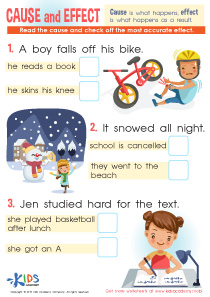Normal Reading Non-Fiction Worksheets for Ages 3-9 - Page 2
69 filtered results
-
From - To
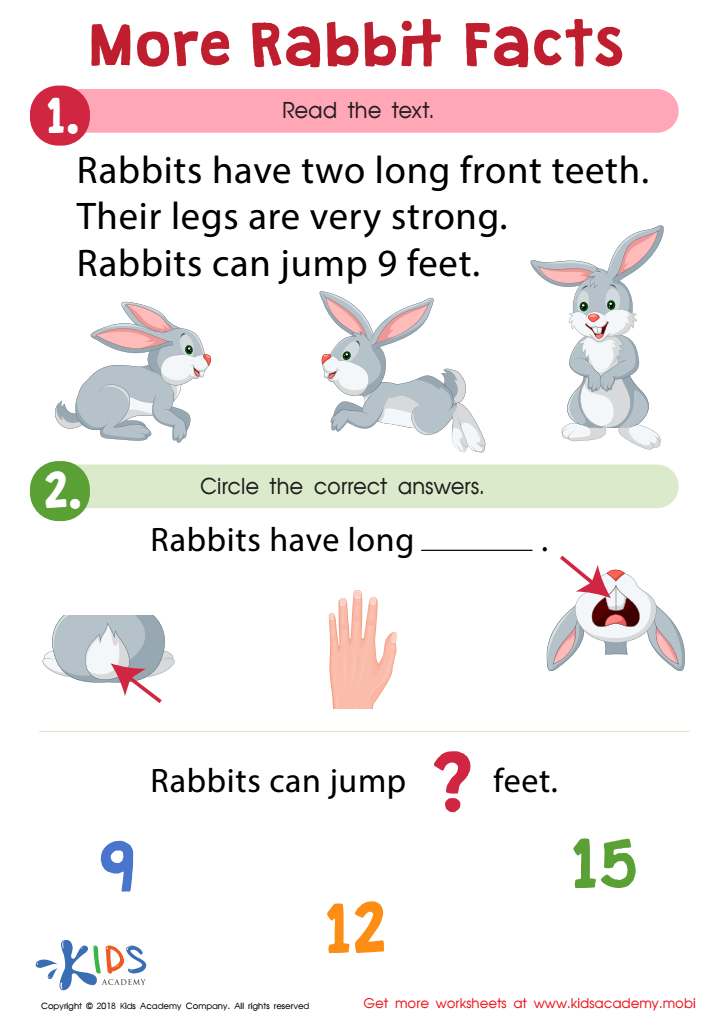

More Rabbit Facts Worksheet
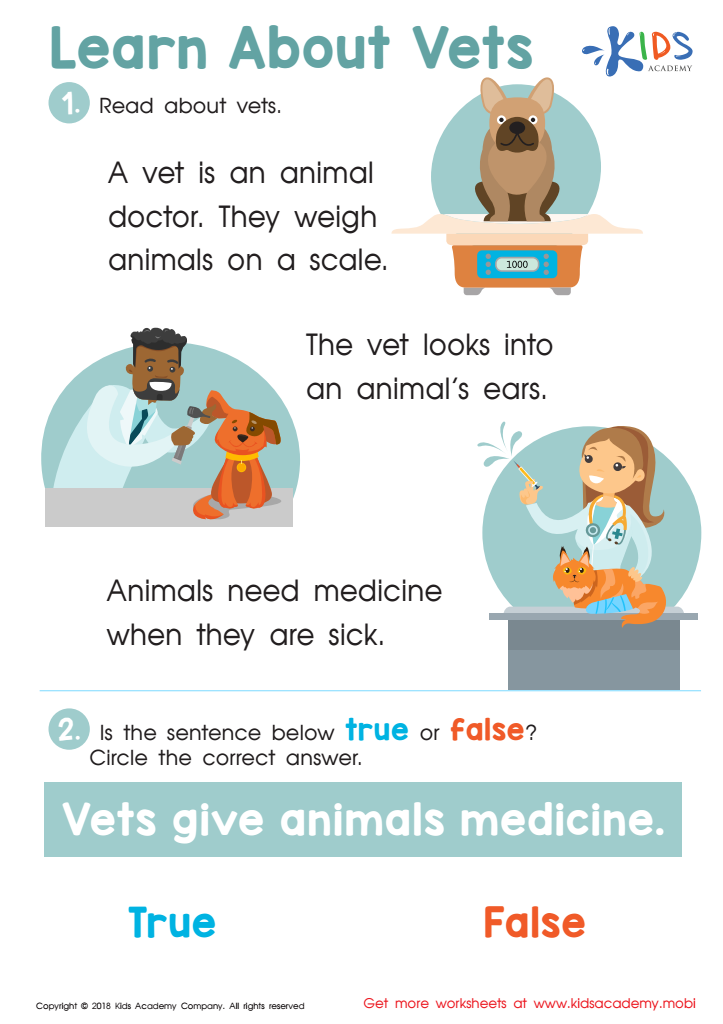

Learn About Vets Worksheet
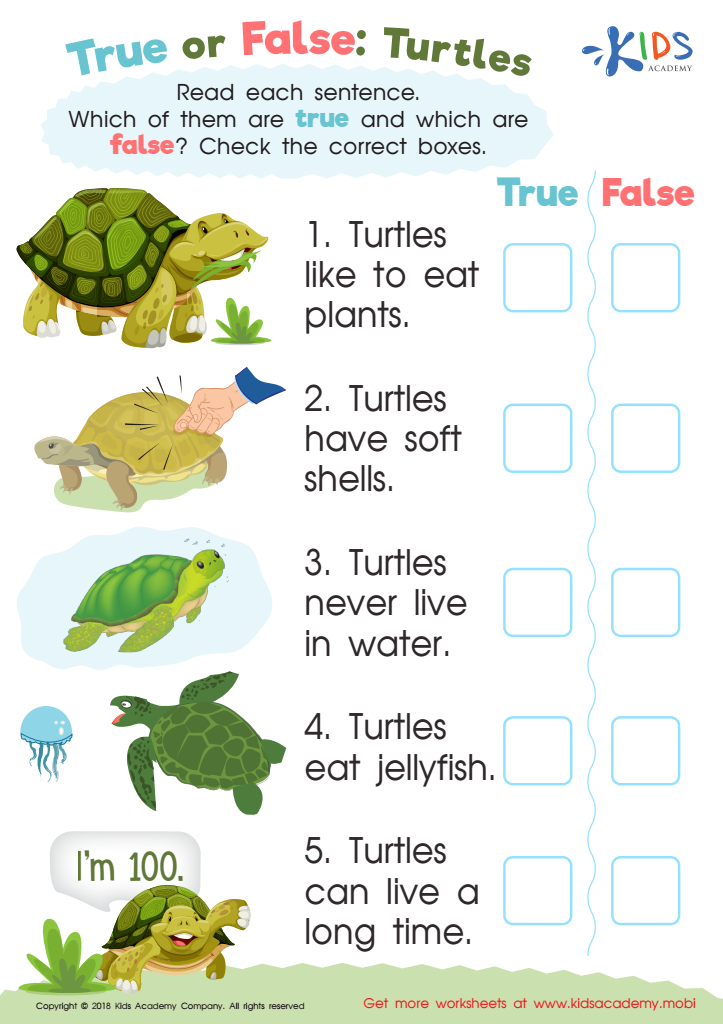

True or False: Turtles Worksheet
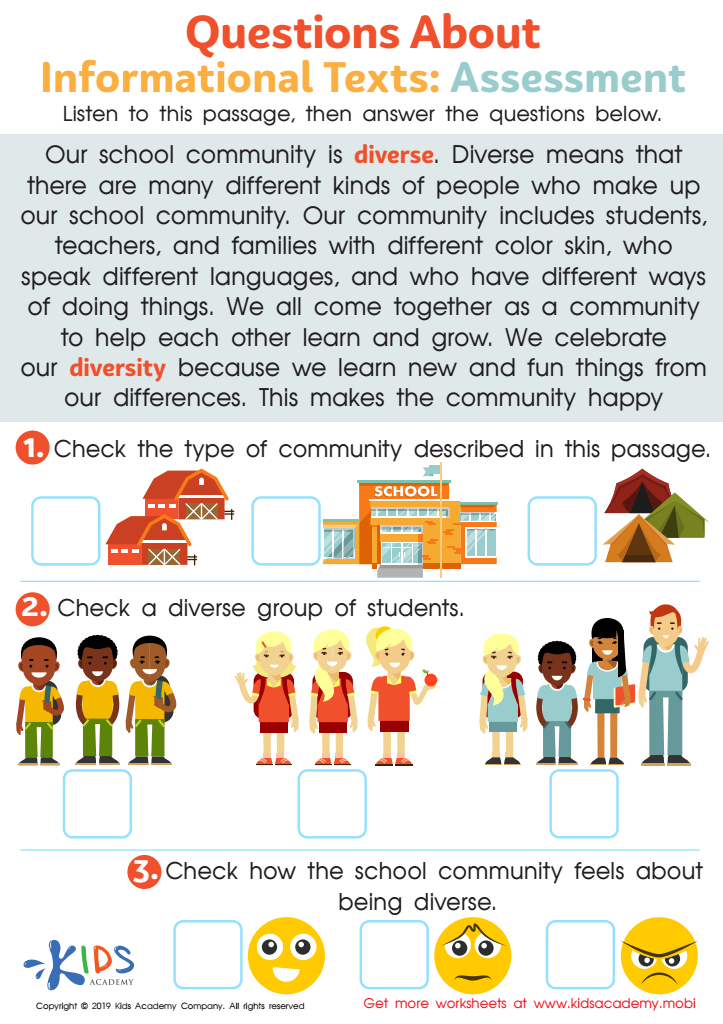

Questions About Informational Texts: Assessment 1 Worksheet
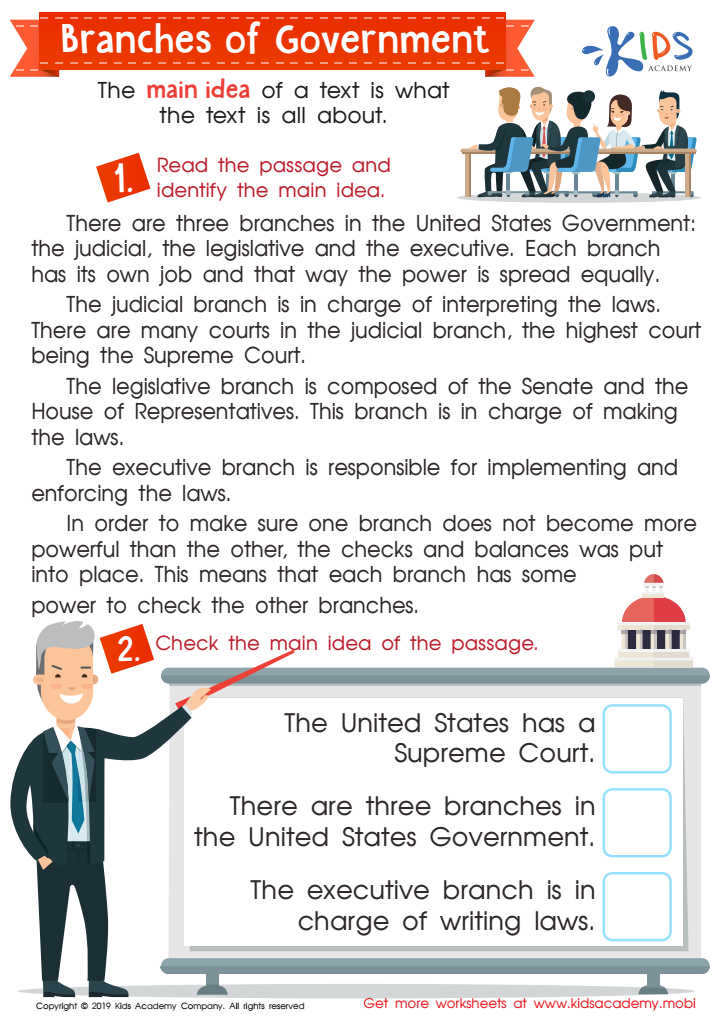

Branches of the Government Worksheet
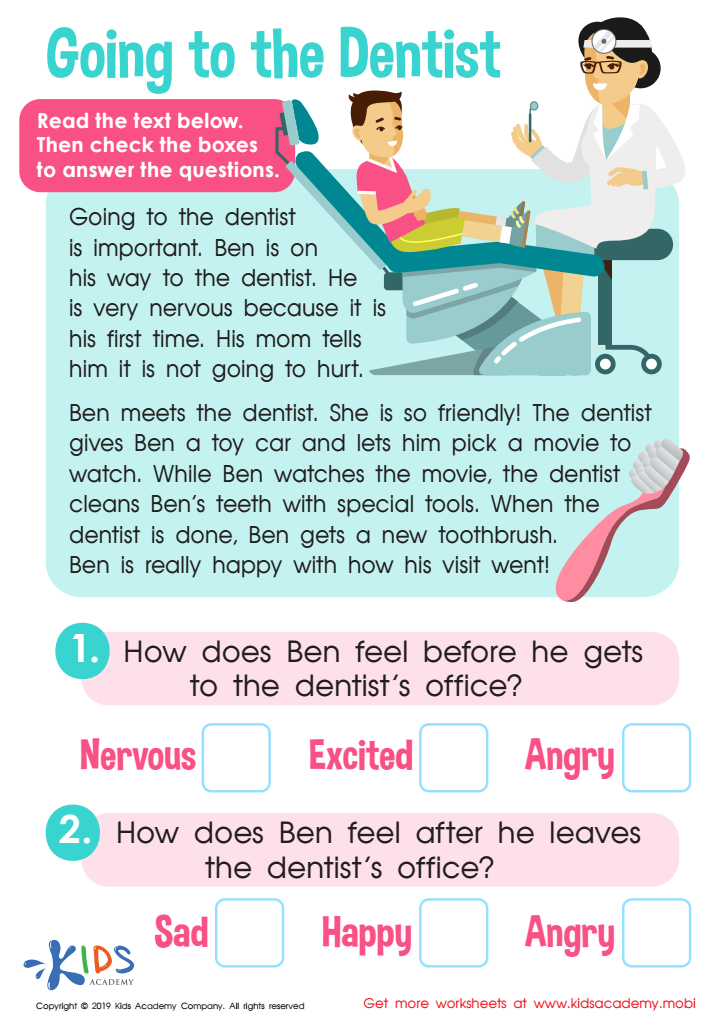

Going to the Dentist Worksheet


Benjamin Franklin Worksheet
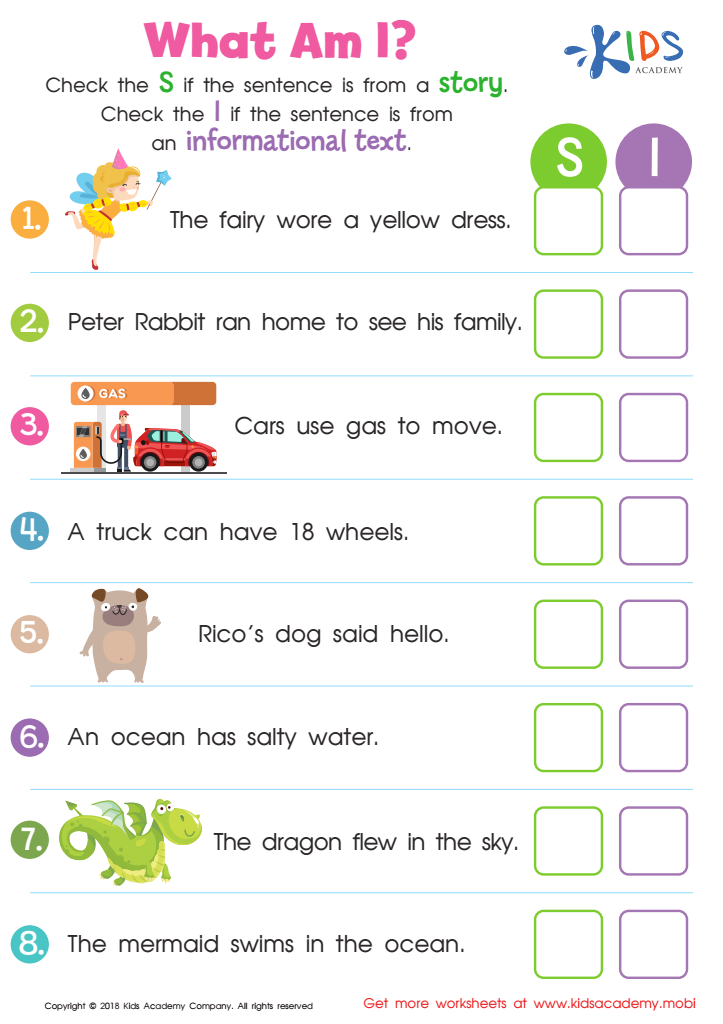

What Am I? Worksheet
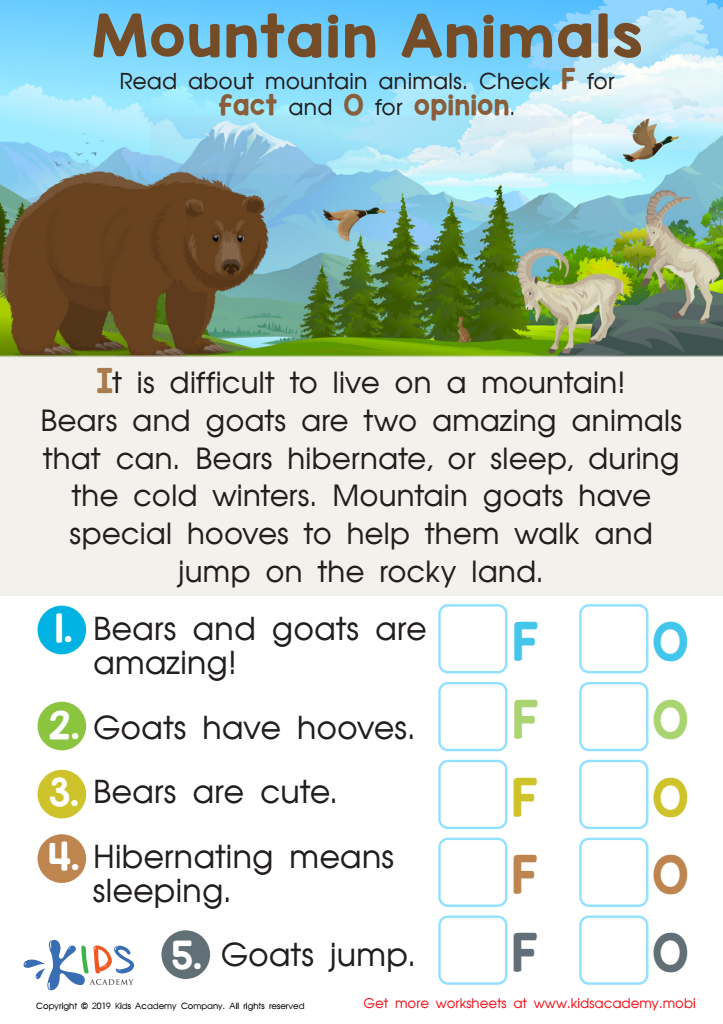

Mountain Animals Worksheet
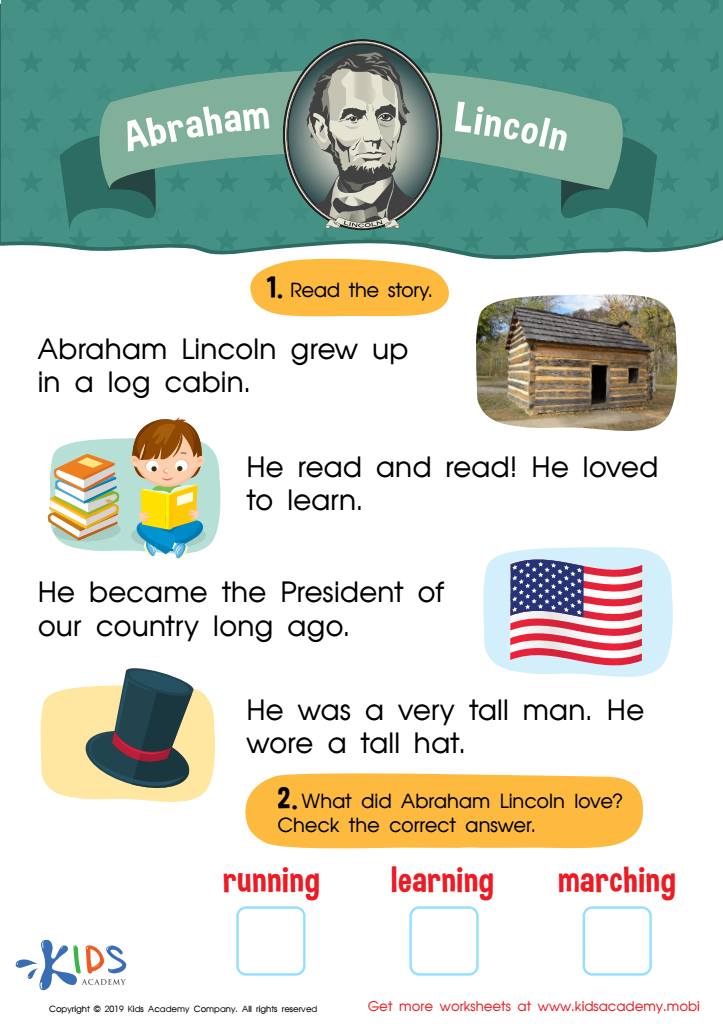

Abraham Lincoln Worksheet
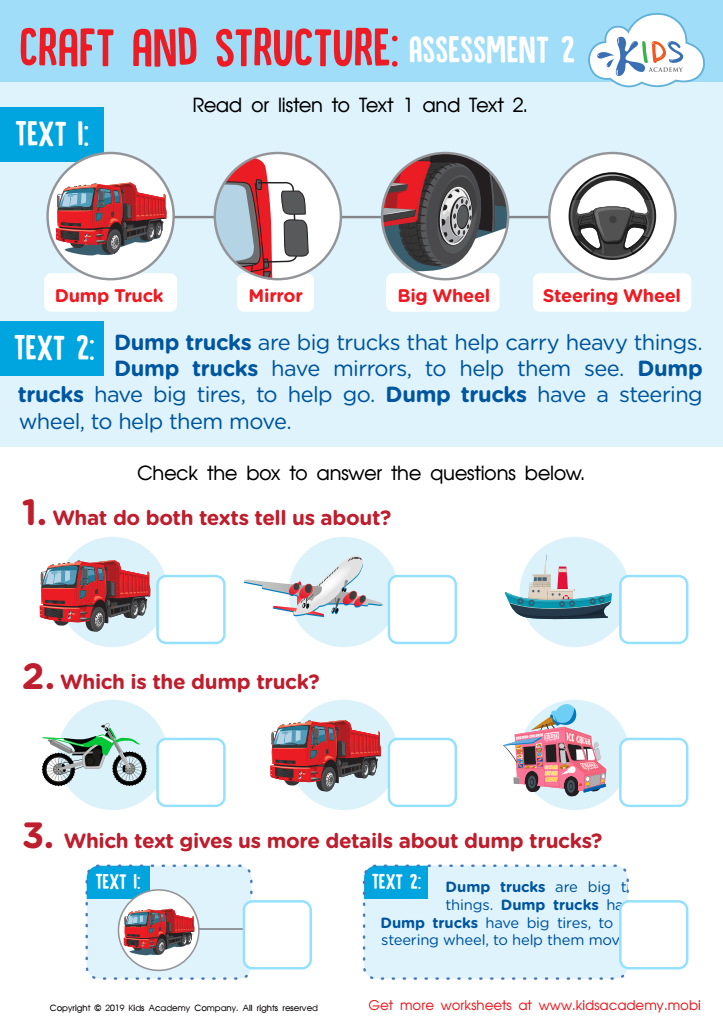

Craft and Structure: Assessment 2 Worksheet
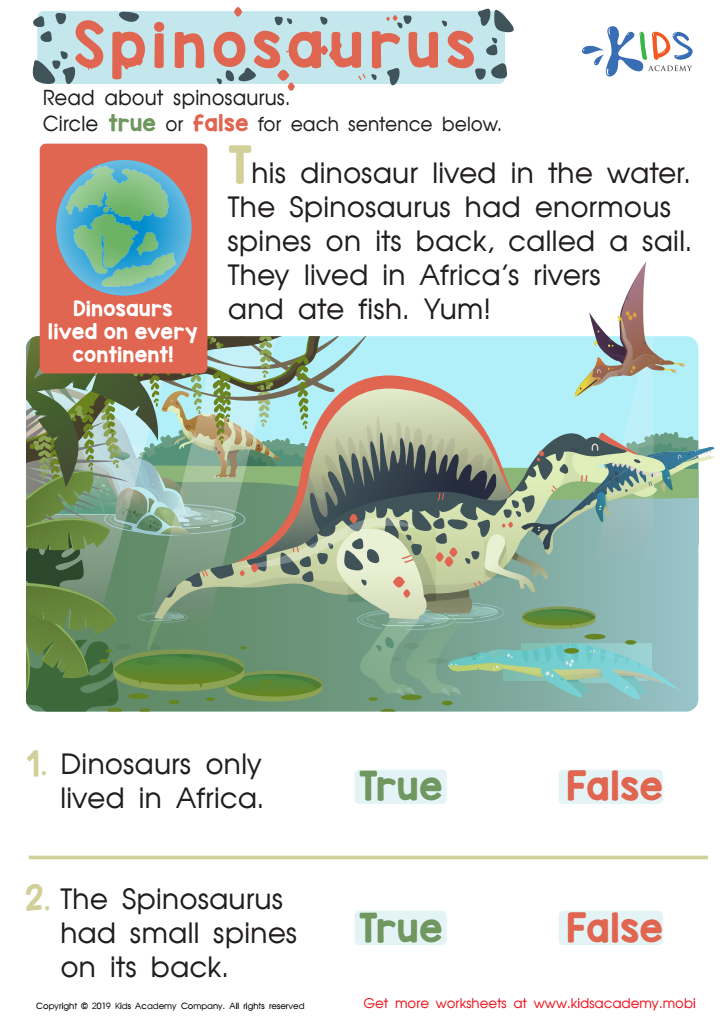

Spinosaurus Assessment Worksheet
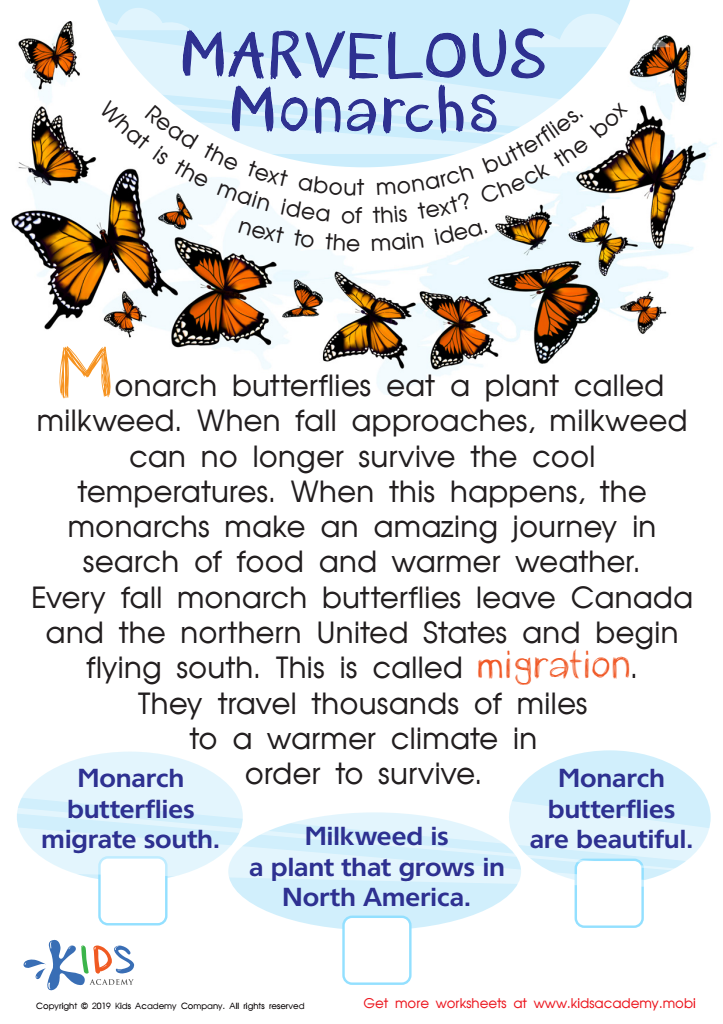

Marvelous Monarchs Worksheet
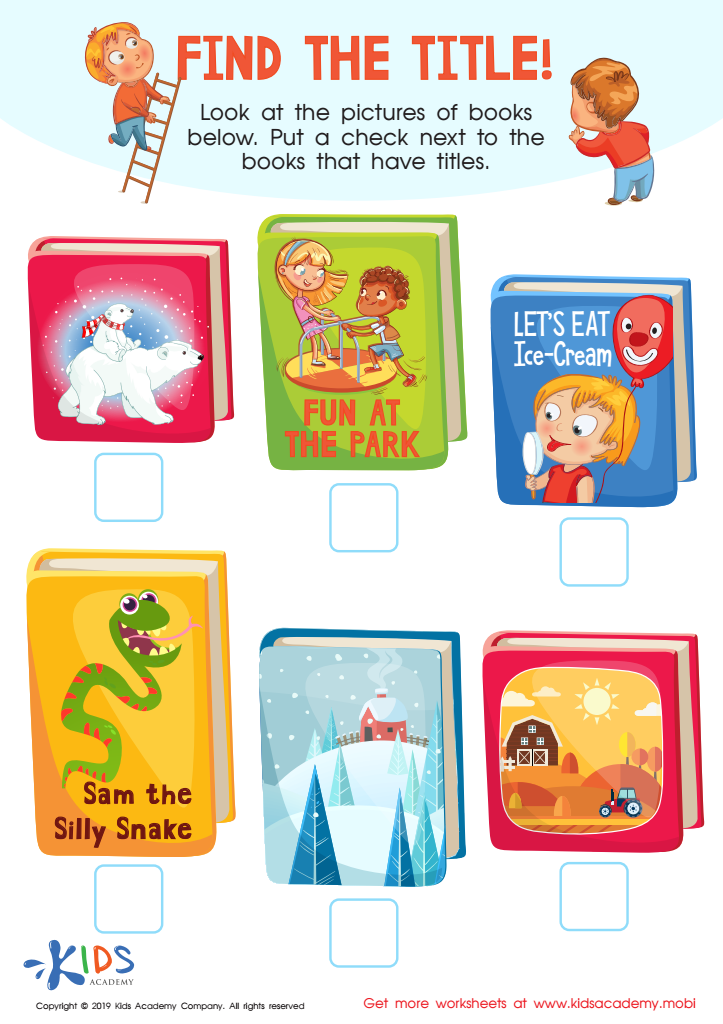

Find the Title Worksheet
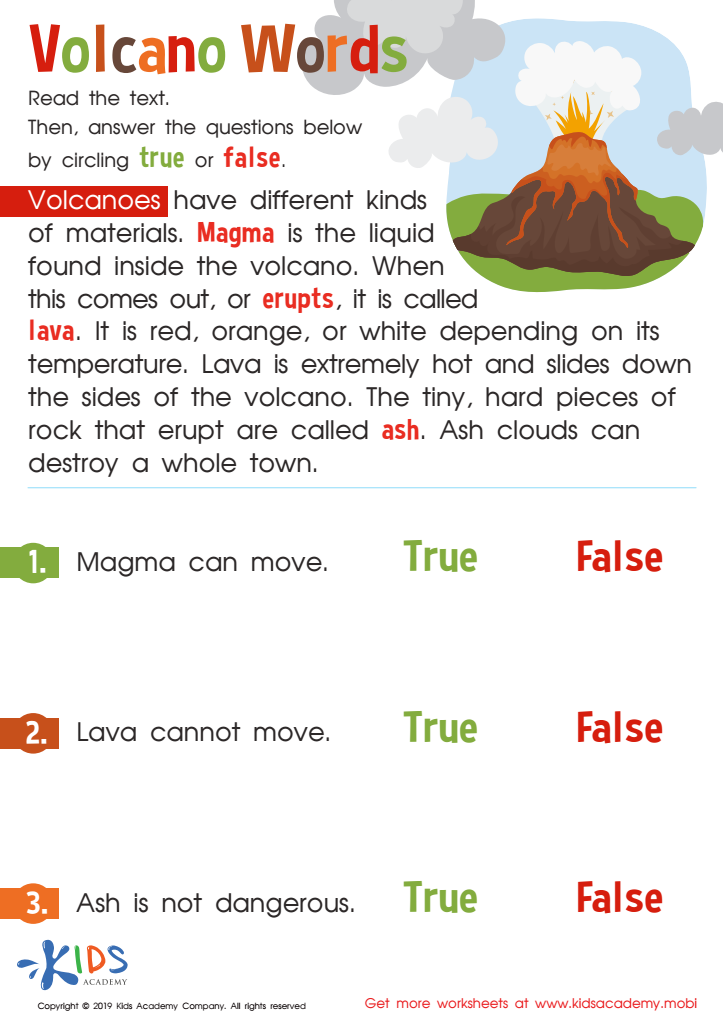

Volcano Words Worksheet
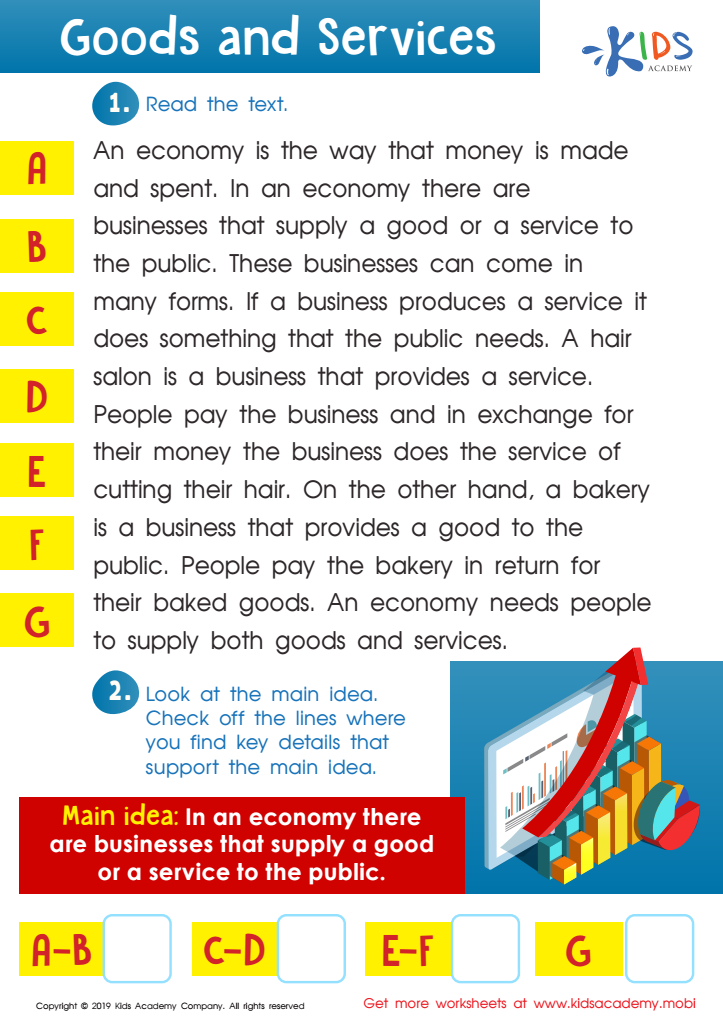

Goods and Services Worksheet
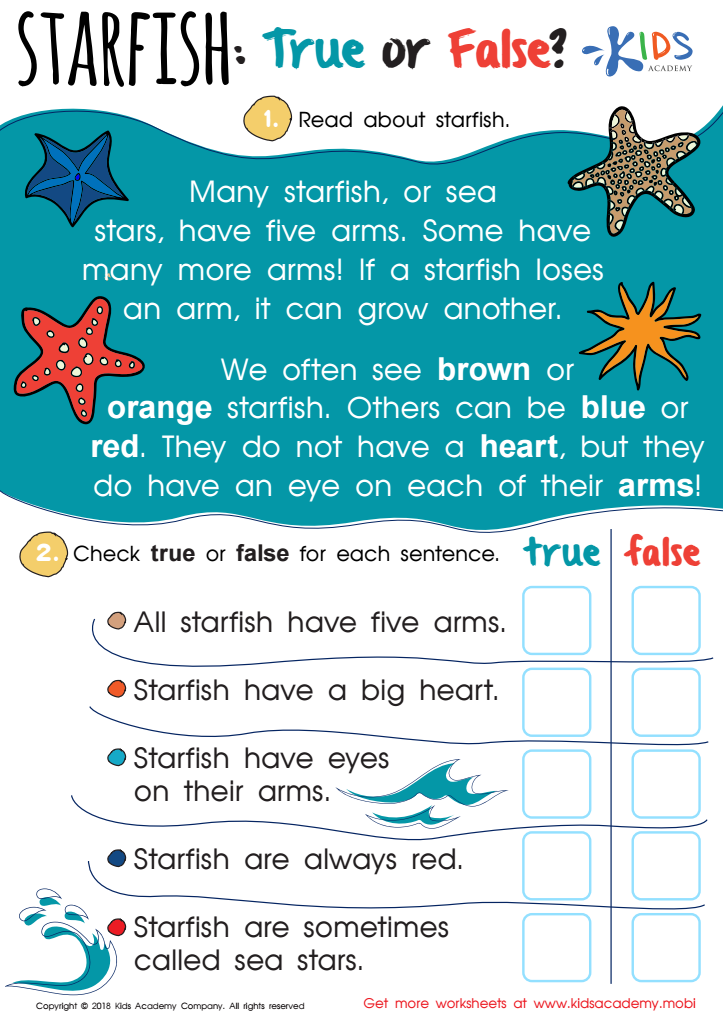

Starfish: True or False Worksheet
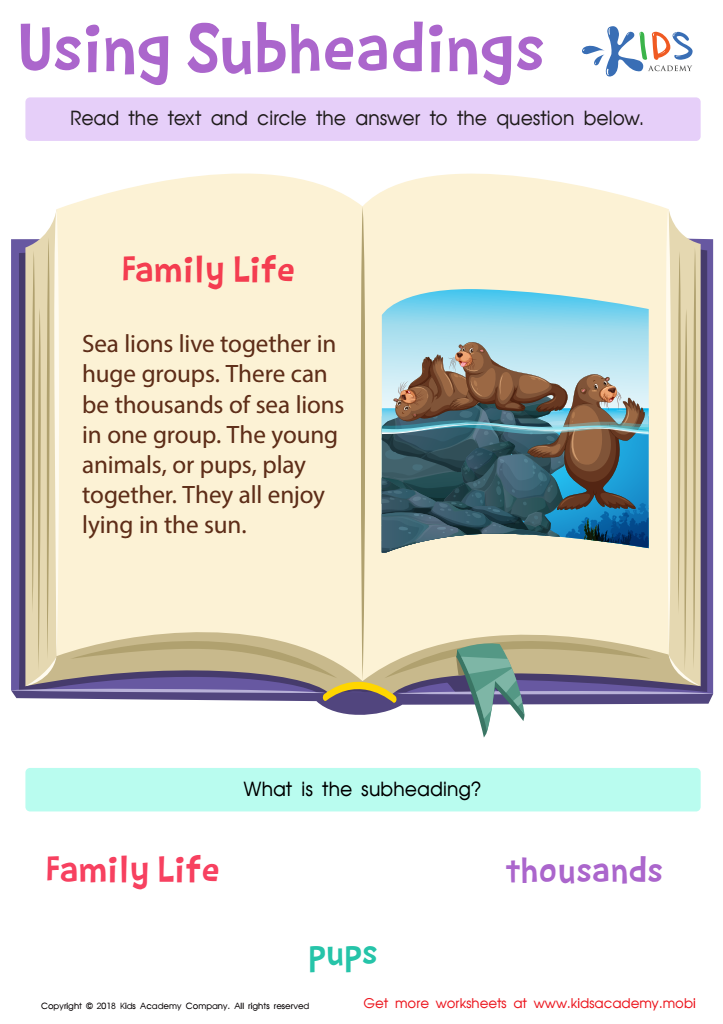

Using Subheadings Worksheet
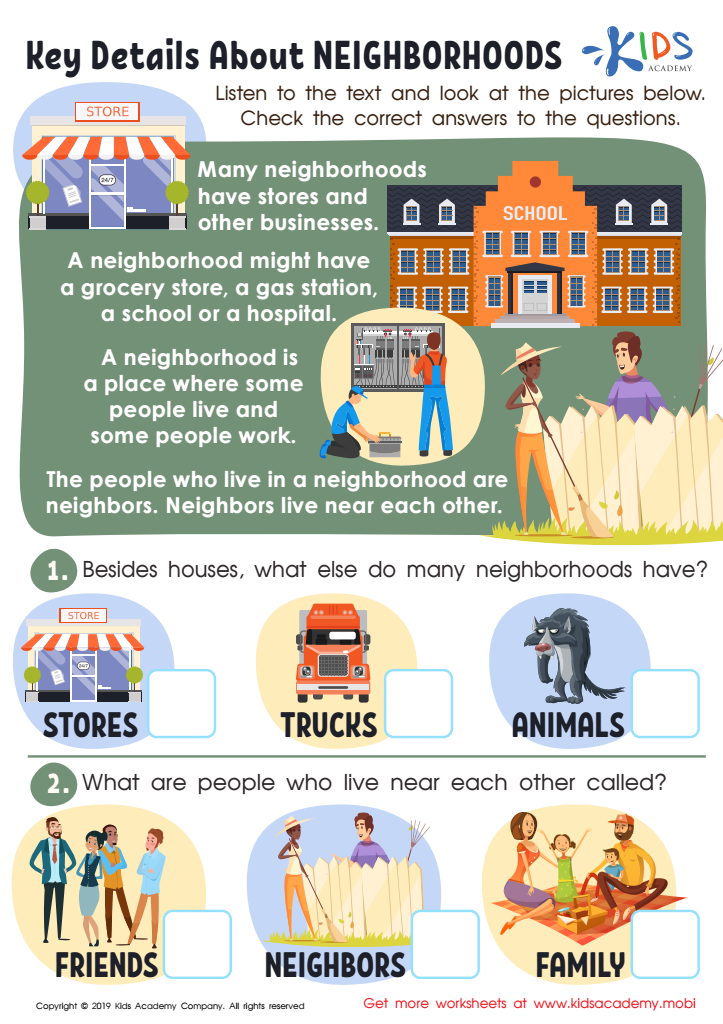

Key Details Neighborhoods Worksheet
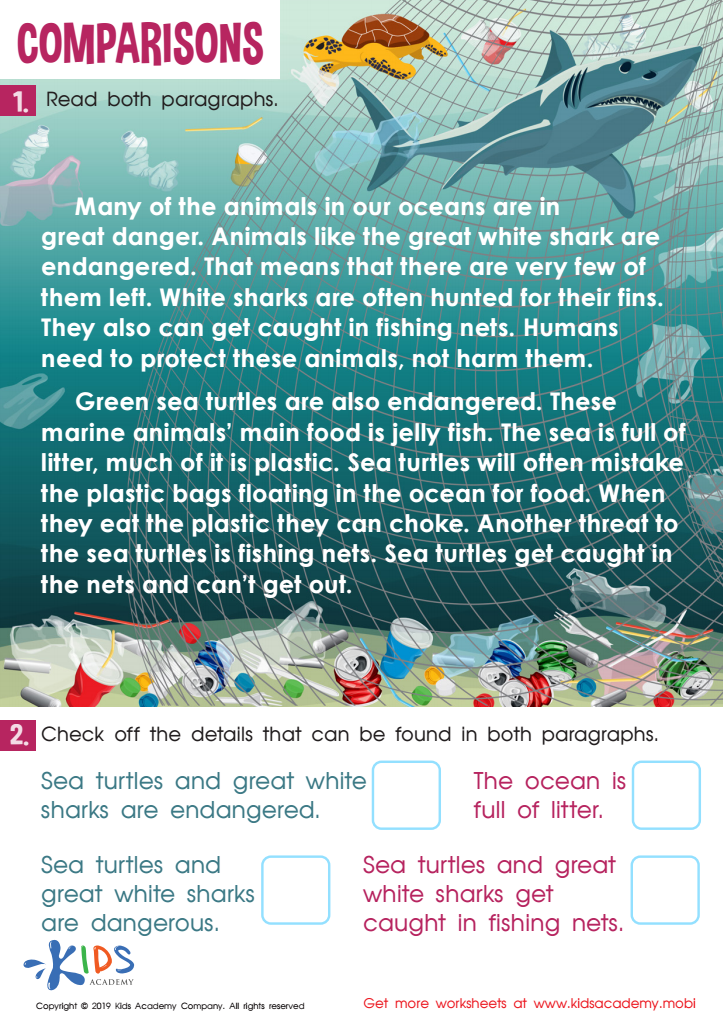

Comparisons Worksheet
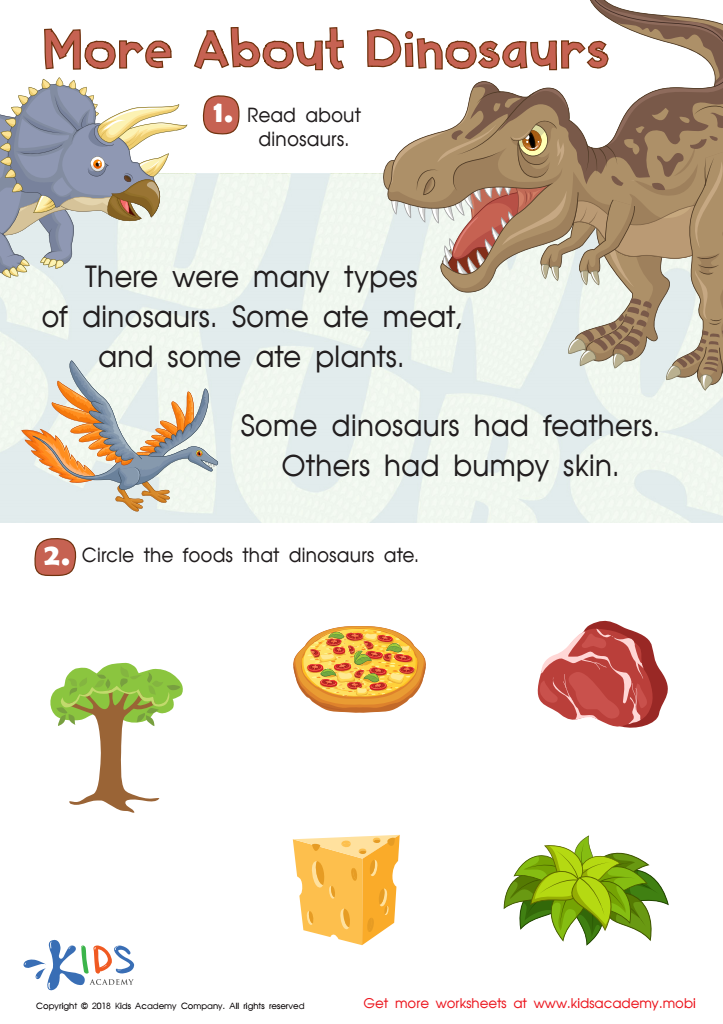

More About Dinosaurs Worksheet
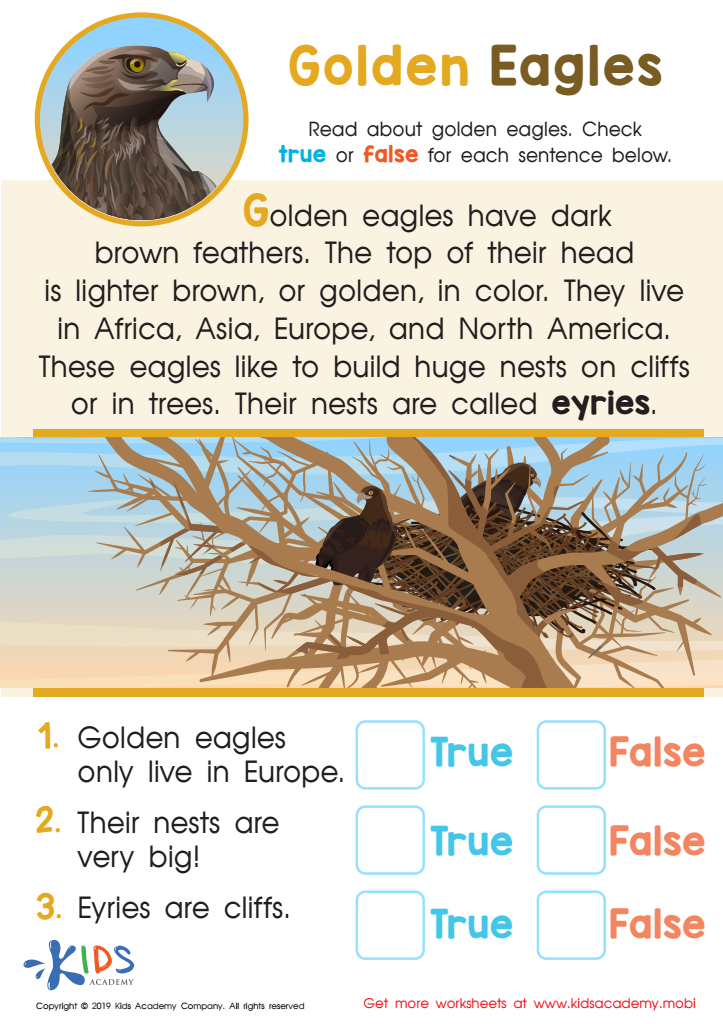

Golden Eagles Worksheet
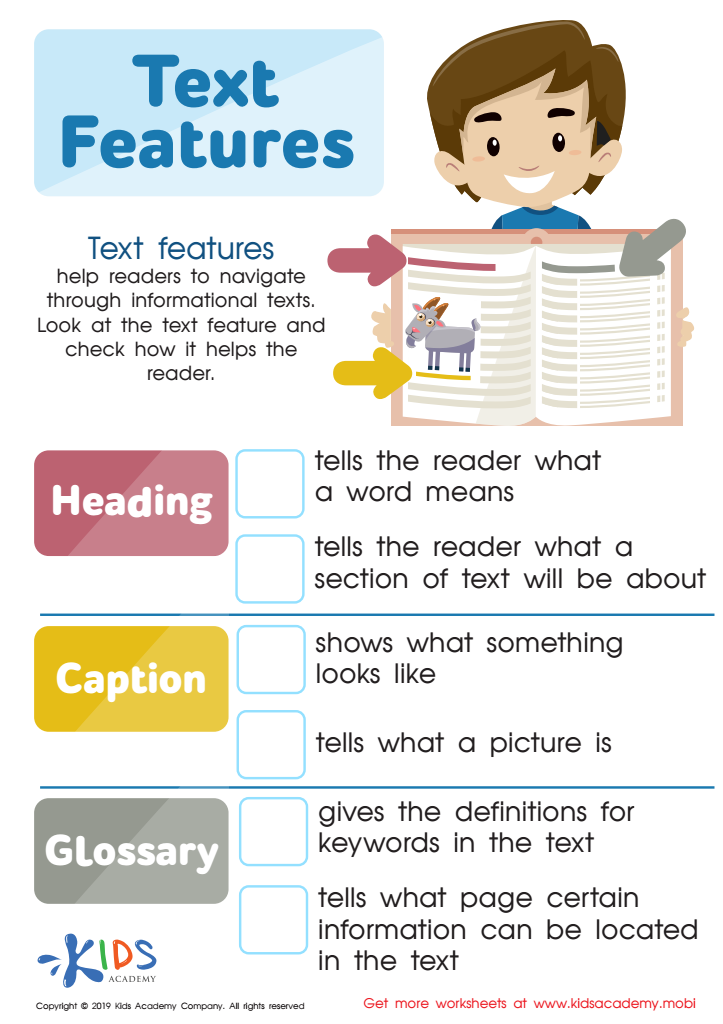

Text Features Worksheet
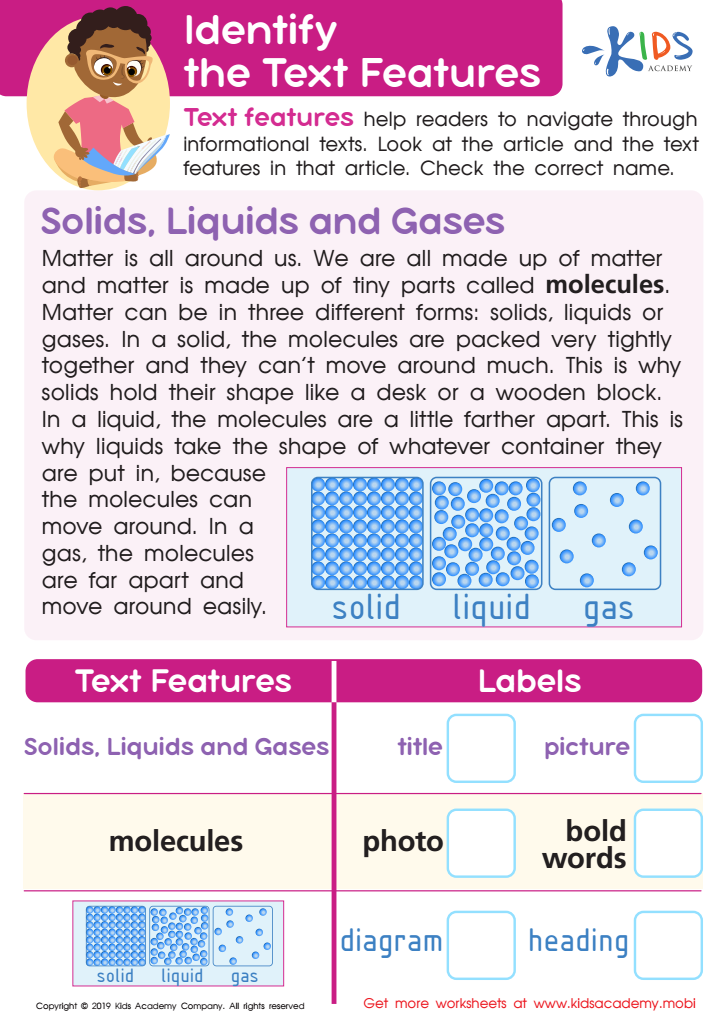

Identify the Text Features Worksheet
Introducing non-fiction reading to children ages 3-9 is instrumental in their early development for several key reasons. First and foremost, non-fiction books enhance general knowledge by exposing young readers to the world around them. Through topics like animals, space, natural phenomena, or cultures, children develop a broader understanding of their environment and diverse subjects.
Early exposure to non-fiction strengthens vocabulary and language skills. Books that include real-world concepts introduce words and terms that may not be present in everyday conversations, thereby expanding a child's linguistic repertoire.
Moreover, non-fiction fosters critical thinking and curiosity. It encourages children to ask questions and seek explanations, nurturing their innate inquisitiveness. Distinguishing between fiction and non-fiction also aids in developing analytical skills, enhancing their ability to understand and process information critically.
Reading non-fiction builds confidence and prepares children for academic success, as informational texts constitute a significant portion of the curriculum in higher grades. Succeeding in understanding non-fiction content becomes a cornerstone of effective learning strategies.
Lastly, fostering a habit of reading and appreciating non-fiction from a young age cultivates a lifelong love for learning and discovery. Parents and teachers play a fundamental role by providing access to age-appropriate non-fiction material, shaping informed, curious, and literate future individuals.
 Assign to My Students
Assign to My Students








